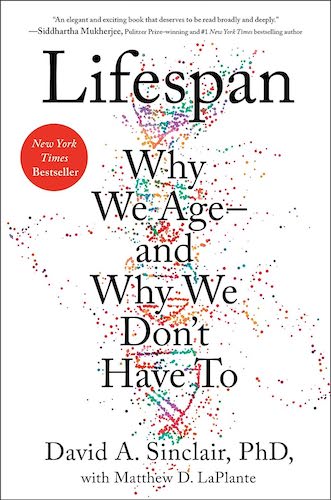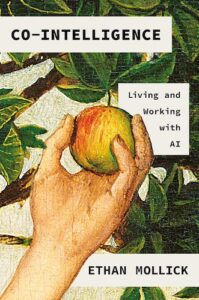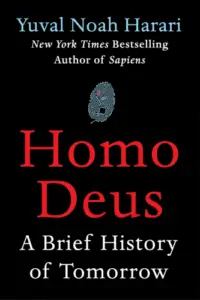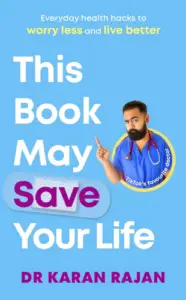Lifespan: Why We Age―and Why We Don’t Have To
Book Author: David Sinclair
Summary reviewed by:
Terrence Timmons
Terrence Timmons
Analyst
Bachelor of Arts (BA), University Of California, Santa Barbara 2019
With over 4 years of experience as an analyst. Terrence Timmons is committed to analyzing summaries without compromising on quality.
Lifespan: Why We Age―and Why We Don’t Have To: Summary
Unlock the Secrets of Eternal Youth in David Sinclair's "Lifespan: Why We Age—and Why We Don’t Have To" is not just a book; it's a revelation that challenges the inevitability of aging. At its core, the book presents the provocative thesis that aging is a disease that can be treated and possibly reversed. Sinclair, a professor of genetics at Harvard Medical School, draws upon his extensive research in the biology of lifespan extension to lend credibility to his assertions. His expertise is the bedrock upon which he builds a compelling narrative, bridging complex scientific theories with accessible insights.
Scientific Underpinnings:
Sinclair introduces the Information Theory of Aging, positing that aging results from the loss of genetic information over time, akin to digital data corruption. He supports his arguments with evidence from groundbreaking studies on sirtuins, NAD, and resveratrol, which have shown promise in reversing aging signs in cells and animals. The book navigates through these scientific terrains with ease, making cutting-edge research understandable and engaging to readers.
A Practical Guide to Age-Defiance:
Beyond the theoretical, "Lifespan" serves as a practical manual for personal rejuvenation. Sinclair doesn’t just present a problem; he offers solutions. He outlines lifestyle changes, dietary adjustments, and technological innovations that have potential longevity benefits. For instance, he advocates for intermittent fasting and reduced protein intake to activate sirtuins, the so-called "longevity genes." The book is pragmatic in its approach, suggesting changes that readers can realistically incorporate into their daily routines.
Application in Daily Life:
Sinclair’s narrative transcends mere theory, offering a blueprint for daily application. He provides readers with actionable steps, from dietary guidelines to exercise recommendations, all aimed at slowing the aging process. These strategies are not just theoretical; they are methods Sinclair applies in his own life, adding an element of personal testimony to the narrative. The book is interspersed with personal anecdotes and case studies, making the scientific discourse relatable and the suggested practices more tangible.
In summary, "Lifespan" by David Sinclair is an enlightening exploration of the science of aging, offering hope and practical strategies for extending human healthspan. It’s a meticulously researched work that translates complex biological concepts into actionable, life-extending advice, backed by the author's own experiences and scientific rigor.
Lifespan: Why We Age―and Why We Don’t Have To: Genres
Non-Fiction
Science
Biology
Gerontology
Health & Wellness
Ethics
Popular Science
Futurism
Aging
Lifespan: Why We Age―and Why We Don’t Have To: Themes
Information Theory of Aging: The theory posits that aging isn’t about the simple wear and tear of cells but is about the loss of cellular information. We discuss the analogy of a scratched record losing its original music over time, linking it to how cellular information can be restored.
Biological Mechanisms of Aging: We examine telomere shortening, mitochondrial dysfunction, and other biological processes to understand how they contribute to aging. For instance, we talk about NAD+ and its decreasing levels as an age-related phenomenon that impacts cell function.
Technological Innovations: Technologies like CRISPR and advances in AI for drug discovery are highlighted as tools that can potentially reverse aging. We mention specific cases like the use of CRISPR to edit genes responsible for age-related diseases.
Ethical and Societal Implications: Questions about who gets access to these therapies, the impact on population growth, and resource utilization are discussed. We ponder on the societal changes when people start living significantly longer and healthier lives.
Healthspan vs Lifespan: The focus is not merely on extending life but improving the quality of life in the years we gain. We discuss interventions, like calorie restriction and intermittent fasting, as ways to improve both.
Lifespan: Why We Age―and Why We Don’t Have To: Methodology
In creating this summary, our approach was guided by Expert Analysis, Practical Application, and Quality and Integrity. Our expert team delved deeply into David Sinclair's "Lifespan," extracting its core themes like the scientific fight against aging and the ethical considerations of extending human life. We translated these complex scientific discussions into actionable insights, demonstrating how readers might apply Sinclair’s longevity strategies in their own lives. Throughout, we adhered to the highest standards of accuracy and clarity, ensuring that each word and theme presented in our summary faithfully reflects the book’s essence and offers real value to our readers.


Lifespan: Why We Age―and Why We Don’t Have To
Date Published: September 10, 2019
Disclaimer: As an Amazon Associate I earn from qualifying purchases.




